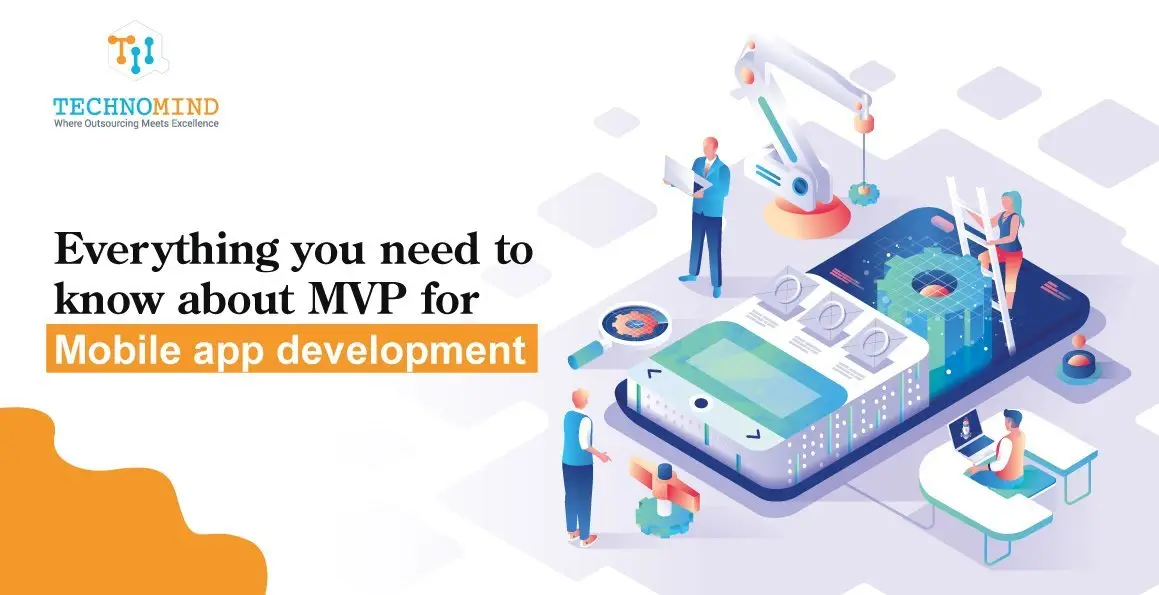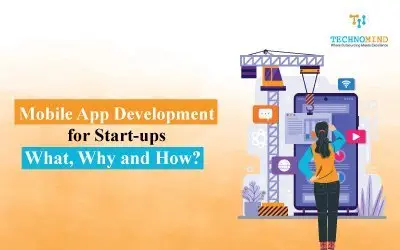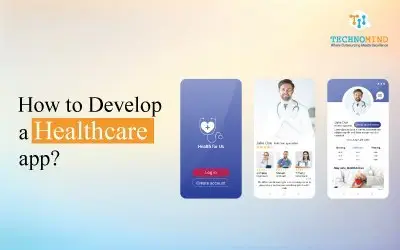Blog
Everything you need to know about MVP for Mobile app development
Every business nowadays want to expand their reach in digital world and doing that in a better way, one of the good option is to have a mobile app if your business have a relevance with it. But, the approach towards it is not old school now. While focusing on mobile app development, entrepreneurs are increasingly turning to a strategic approach known as the Minimum Viable Product (MVP). And truly speaking, it is the right approach too. An MVP serves as the initial version of an app, equipped with essential features to validate concepts and gather crucial user feedback.
The article addresses the rationale behind why MVPs are turning into a necessary tool for entrepreneurs entering the cutthroat field of app development. The simplicity and efficacy of MVPs provide a critical basis for success in the ever-changing world of mobile applications, from risk mitigation to cost optimization.
Let’s take a look in detail.
What is an MVP (Minimum Viable Product)?
A Minimum Viable Product (MVP) is a fundamental strategy in product development, also applicable in mobile app development. It involves the creation and release of a simplified version of a product, such as a mobile app, with the primary goal of gathering user feedback and validating the viability of the concept.
Unlike fully-featured applications, an MVP includes only the essential functionalities required to fulfill its core purpose. This deliberate simplicity enables entrepreneurs to test hypotheses, evaluate user responses, and make informed decisions about the app’s direction while minimizing resource investment.
Simply speaking, a minimum viable product (MVP) is a first version, a calculated leap that directs further development according to user input and real-world observations. The goal is to construct and refine based on iterative learning and user feedback, rather than presenting a finished solution from the start.
Why the Importance of MVP is Growing in App Building Business?
The app-building business is evolving, and so are the demands and expectations of users. Entrepreneurs now recognize the need for a strategic approach that minimizes risks and maximizes insights. MVPs provide a cost-effective way to validate app ideas, ensuring that entrepreneurs invest their time and resources wisely.
The adoption of a Minimum Viable Product (MVP) approach in mobile app development brings forth a myriad of benefits, contributing to the overall success and sustainability of the project.
Let’s check it out in next section.
Benefits of MVP for Mobile app development
User-Centric Development:
MVPs prioritize user feedback, ensuring that the final app is finely tuned to meet the specific needs, preferences, and pain points of the target audience.
User involvement in the early stages fosters a sense of ownership and engagement, leading to a more loyal user base.
Risk Mitigation:
- Launching an MVP provides a controlled environment for testing new ideas, helping to identify and mitigate potential risks before substantial resources are invested.
- Early user feedback allows for adjustments, reducing the risk of developing a product that might not resonate with the intended audience.
Cost Efficiency:
- Focusing on essential features in the MVP phase optimizes resource allocation, ensuring that financial investments align with validated user needs.
- Cost savings result from avoiding extensive development of features that may not be crucial to the core functionality of the app.
Quick Time-to-Market:
- MVPs enable a swift market entry by delivering a basic, functional version of the app, allowing developers to gather insights and feedback sooner than with a fully developed product.
- Early market entry provides a competitive advantage and allows for quicker adaptation to changing market conditions.
Agile Iterations:
- The iterative nature of MVP development aligns seamlessly with the agile methodology, facilitating quick adjustments based on user responses, evolving market trends, and technological advancements.
- Regular iterations enable developers to stay agile and responsive throughout the development process.
Enhanced User Engagement:
- Involving users early in the development process creates a sense of community and engagement, leading to a more invested and loyal user base.
- Early engagement fosters a relationship between users and the app, increasing the likelihood of long-term usage and positive word-of-mouth.
Enhanced User Engagement:
- Involving users early in the development process creates a sense of community and engagement, leading to a more invested and loyal user base.
- Early engagement fosters a relationship between users and the app, increasing the likelihood of long-term usage and positive word-of-mouth.
Real User Feedback:
- Launching an MVP provides an invaluable opportunity to collect authentic user feedback in a real-world setting, offering insights into user behavior and preferences.
- Real user feedback forms the basis for data-driven decision-making, guiding developers in refining and enhancing the app for subsequent iterations.
Strategic Decision-Making:
- Insights gained from the MVP phase empower decision-makers with a deep understanding of user needs and market dynamics.
- Informed decision-making ensures that subsequent development phases align with market demands, optimizing the chances of the app’s success.
Optimized Features:
- MVPs allow developers to identify and prioritize essential features, ensuring that the final app is streamlined and focused on delivering core functionalities.
- Feature optimization is guided by user feedback, guaranteeing that the app meets the most critical user requirements.
Market Validation:
- The MVP serves as a testing ground to validate the demand for the app, providing concrete evidence of its market viability.
- Market validation in the early stages ensures that the final product addresses genuine market needs, increasing the likelihood of widespread adoption.
Iterative Refinement:
- Continuous refinement based on user feedback allows for an iterative improvement process, resulting in a final product that not only meets but exceeds user expectations.
- Iterative refinement is a dynamic and ongoing process that ensures the app evolves to stay relevant and competitive in the ever-changing app landscape.
Competitive Advantage:
- By adopting an MVP strategy, developers gain a competitive advantage by entering the market early with a functional product that can be refined based on real-world usage and feedback.
- Early market presence and the ability to adapt quickly based on user insights position the app ahead of competitors and contribute to long-term success.
Drawbacks of Ignoring MVP for Mobile app development
In the absence of a Minimum Viable Product (MVP) in mobile app development, entrepreneurs face heightened risks and limitations. Without the strategic insights gained from an MVP, there’s a potential for increased development costs, extended time-to-market, and a higher chance of launching an app that lacks the adaptability and user resonance crucial for success.
High Development Risk: Skipping MVP raises the risk of investing heavily in an unproven concept, potentially leading to financial setbacks if the app fails to gain traction.
Limited User Insight: Without an MVP, crucial user feedback is missed, hindering the understanding of user preferences and behaviors necessary for refining the app.
Increased Development Costs: Developing a full-scale app upfront can incur higher costs, as changes become more expensive and time-consuming in later stages.
Extended Time-to-Market: The absence of the iterative MVP approach prolongs the time required to bring the final app to market, delaying its competitive entry.
Reduced Adaptability: Missing the MVP phase hampers the app’s adaptability to changing user needs, market trends, and technological advancements.
Higher Chance of Failure: Launching without MVP increases the risk of creating an app that doesn’t resonate with users, elevating the likelihood of failure in the competitive app market.
5 Tips to Make the Perfect MVP for Mobile Apps
Define Clear Objectives: Clearly outline the goals and purpose of your MVP, ensuring that each feature aligns with these defined objectives to maintain focus.
Focus on Core Features: Identify and prioritize the essential functionalities that define the core purpose of your app, avoiding unnecessary complexities in the MVP phase.
Iterative User Feedback: Actively seek and incorporate user feedback during the MVP development, allowing for continuous improvement based on real-world user experiences.
Strategic Timing for Launch: Plan the timing of your MVP launch strategically, considering market trends and ensuring that your app enters the competitive landscape at an opportune moment.
Data-Driven Decision Making: Utilize analytics and user data to make informed decisions during the MVP phase, guiding subsequent iterations for optimal user satisfaction and market success.
Conclusion
For mobile app development, the MVP methodology provides a tried-and-true way to test concepts, reduce risks, and guarantee that the finished result will smoothly meet user expectations. Entrepreneurs may negotiate the intense app-building industry with confidence and accuracy by utilizing MVPs, which will ultimately result in the development of profitable and user-focused mobile applications.
Looking to have your MVP mobile app in near future? – At Technomind, we can make it smooth and simpler. Connect with our experts now and get ready for the best future of your business.
Mobile App Development for Start-ups – What, Why and How?
Mobile applications are becoming more and more essential to the expansion and success of organizations, especially startups. Since…
How to Develop a Healthcare app?
Can you imagine a world where healthcare services are just a tap away on your smartphone? As technology continues to revolutionize various…
How Much Does It Cost to Develop An Expense Tracking App?
Who keeps a daily cost log in their pocket and keeps it open at all times. Additionally, this is not the time to keep an offline account of your costs…




0 Comments